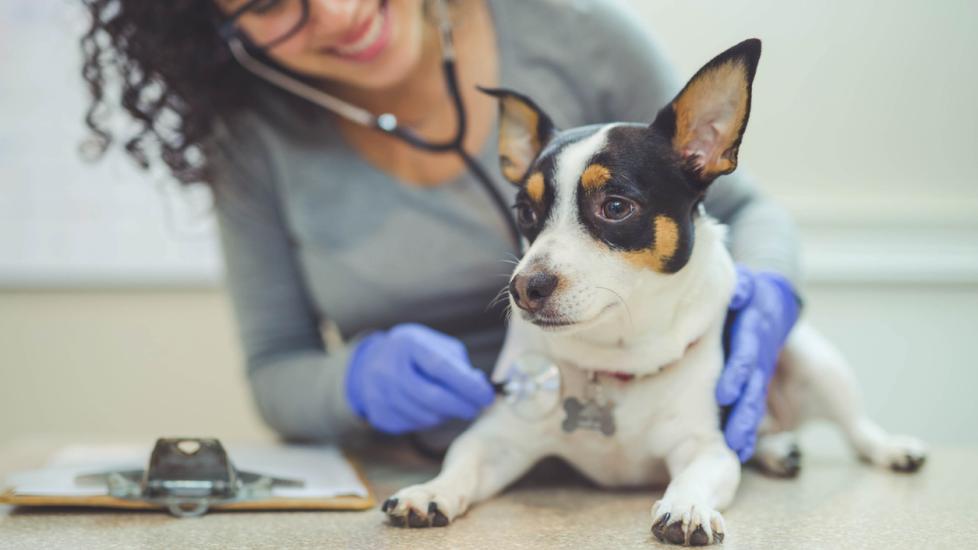L-Carnitine for Dogs
PetMD’s medications content was written and reviewed by veterinary professionals to answer your most common questions about how medications function, their side effects, and what species they are prescribed for. This content shouldn’t take the place of advice from your vet.
What Is L-Carnitine?
L-carnitine is an essential amino acid (building block of protein) required for the metabolism of fat and energy and is a nutrient that helps promote normal heart and skeletal muscle function.
L-carnitine, also known as levocarnitine, is a supplement that may be recommended by veterinarians to treat specific types of heart disease in dogs—dilated cardiomyopathy (DCM) and cardiomyopathy caused by the anti-cancer medication doxorubicin. L-carnitine can be used as a solo medication, but it is more often used in combination with other medications for the management of heart disease.
L-carnitine may also be used in combination with other medications to treat toxicities from valproic acid, a human anti-seizure medication that can cause liver toxicity in dogs. L-carnitine is also used to treat a rare genetic disorder in dogs, L-carnitine deficiency.
Your veterinarian will determine which L-carnitine formulation and dosage is best for your dog based on their circumstances and symptoms. Make sure that the product you are giving your dog contains L-carnitine and not D-carnitine, which blocks L-carnitine from working.
It is important to note that the actual amount of L-carnitine in a supplement labeled as carnitine can vary greatly. Additionally, a healthy dog does not need to take an L-carnitine supplement if they are already eating a high-quality AAFCO-approved food that is nutritionally complete and balanced with essential nutrients.
L-carnitine is FDA-approved for human use in multiple prescription forms under the brand name Carnitor® and generic levocarnitine. It is also available as a prescription injection and in over-the-counter bulk powder formulations. L-carnitine is currently not FDA-approved as a veterinary medication. However, it is occasionally utilized in the veterinary field, and veterinarians can legally prescribe certain human drugs in animals in certain circumstances. This is called extra-label or off-label use because this use isn’t described on the drug label. Your veterinarian will determine whether this medication is right for your dog.
How L-Carnitine Works
L-carnitine is an essential nutrient that plays a critical role in fat and energy metabolism. It works by moving fatty acids inside the cell, where they are converted to energy. The heart muscle and skeletal muscles are the most important locations where L-carnitine is stored and used.
L-Carnitine Directions
Follow the directions on the drug label or as provided by your veterinarian.
L-carnitine can be given with or without food, but giving it with food can decrease the risk of digestive upset.
If using a powder form of this medicine, mix it into your dog’s food as directed by your veterinarian. Use L-carnitine; do not use any carnitine product that contains D-carnitine.
Missed a Dose?
Speak with your veterinarian about what to do if you forget to give a dose of L-carnitine. Generally, they may instruct you to give it when you remember, or if it is almost time for your pet’s next dose, to skip the missed dose and resume your normal dosing schedule. Do not give extra or double doses.
L-Carnitine Possible Side Effects
L-carnitine is typically well tolerated in dogs. Possible side effects are usually associated with high doses and may include:
-
Diarrhea
-
Nausea
-
Vomiting
Human Side Effects
L-carnitine is also a medication for humans, frequently with dosages that are different from those prescribed for your pet by a veterinarian. Due to possible side effects, humans should never use medicine dispensed or recommended for their pets and pets should not be given any medicine dispensed for a human’s use.
If you accidentally ingest a pet medication, call your physician or the national Poison Control Center hotline at 800-222-1222.
Call Your Vet If:
-
Severe side effects are seen (see above)
-
Your pet’s condition worsens or does not improve with treatment
-
You see or suspect an overdose
-
You have additional questions or concerns about the use of L-carnitine
L-Carnitine Overdose Information
Higher dosages of L-carnitine may cause diarrhea and gastrointestinal upset. Studies have not been performed to evaluate the potential toxicity of L-carnitine in animals.
If you suspect an overdose, immediately contact your veterinarian, seek emergency veterinary care, or call an animal poison control center. Consultation fees often apply.
Pet Poison Helpline (855) 764-7661
ASPCA Animal Poison Control (888) 426-4435
L-Carnitine Storage
Levocarnitine formulations should be stored at controlled room temperature from 68 F–77 F. Always confirm storage requirements by reading the prescription label.
Keep out of reach of children and pets.
L-Carnitine for Dogs FAQs
Is L-carnitine safe for dogs?
Yes. L-carnitine is generally considered safe for most dogs. Your dog may not need additional L-carnitine supplementation if they do not have a certain type of heart disease or a rare genetic defect. A high-quality AAFCO-approved food is nutritionally complete and balanced, and already contains the essential nutrients your dog needs. Speak with your vet first to ensure L-carnitine is appropriate for your dog.
What does L-carnitine do for dogs?
L-carnitine is an essential nutrient the body needs to metabolize fat and energy, which is especially important to promote normal heart and skeletal muscle function.
No vet writer or qualified reviewer has received any compensation from the manufacturer of the medication as part of creating this article. All content contained in this article is sourced from public sources or the manufacturer.
Featured Image: iStock.com/FatCamera
References
Help us make PetMD better
Was this article helpful?
